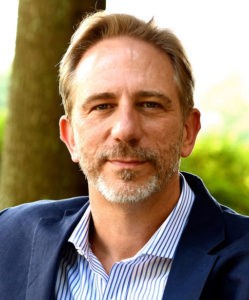I am in the midst of an excruciating period of personal suffering. I am not at liberty to describe what is going on. Suffice it to say that it is a relational matter; it is awful; I have no idea how long it will last; I have no ability to fix it; and, whenever I think the situation is as bad as it can be, it gets worse.
I find myself desperately asking what mental-emotional-spiritual moves are available to me as a human and as a Christian. I am trying to work this out for myself. Perhaps my wrestlings might be relevant to others who face something similar.
The other day, I was experiencing this suffering acutely. I had no liberty to physically absent myself from the situation that was causing it. Each moment that went by, I felt more miserable. I needed relief.

David Gushee
Then it struck me: radical acceptance. A Google search reveals that this is a term in wide circulation in the self-help and psychology literature. But I was not aware of that when the phrase popped into my head. I think it came to me more through religious studies, my awareness especially of Stoic and Buddhist thought. The basic idea, as I see it, is victory through radical resignation to reality. The suffering we experience loses some of its bite when we no longer fight it, when we resign ourselves to it, when we accept that this is reality.
Psychologist Karyn Hall, a dialectical behavioral therapy skills coach, puts it this way: “Radical acceptance is about accepting life on life’s terms and not resisting what you cannot or choose not to change. Radical acceptance is about saying yes to life, just as it is.”
For about five minutes, radical acceptance worked for me. I surrendered my memory of a better period in my life, my desire for a better future, my yearning for anything other than the unexpected and terrible reality I was currently experiencing. This is your life now, Gushee. This is your reality. Take a deep breath. Stop fighting it.
“The phrase radical acceptance flew right out my mental window, to be replaced by this one: crap sandwich.”
But then the situation that day went from bad to worse. The phrase radical acceptance flew right out my mental window, to be replaced by this one: crap sandwich. I am not aware of ever thinking (let alone writing!) that phrase anytime in my life before — because I was trained 40 years ago by Southern Baptists not to speak crudely. (Note to the young reader: Southern Baptists once cared about clean language.) But, golly gee whiz, crap sandwich was the phrase that came to mind, along with the following sentence: Radical acceptance cannot overcome repeatedly being forced to eat crap sandwiches.
I am not dismissing thousands of years of human reflection on something like radical acceptance, nor the value that such a strategy might have for others, or even for myself in other situations. I think there is tremendous wisdom in recognizing that suffering just comes to us in life sometimes, and that sometimes it can be (somewhat) managed through a mental strategy of accepting what we cannot change, of resigning our flailing and thrashing about in search of a different reality than the one we face. Sometimes it is best to resign, to lay our king down on the chess board, to say to Reality across the table, you win.
But for me, in this situation, right now, it does not seem that this strategy is going to work.
Nor do I think it reflects the deepest insights of the Christian tradition, which I think has some interesting alternatives on offer.
Next time I feel up to addressing this misery again, I want to engage with the Spanish mystic St. John of the Cross, who I am hanging out with some these days. He wrote this:
It is better to be burdened and in company with the strong than to be unburdened and with the weak. When you are burdened you are close to God, your strength, who abides with the afflicted. When you are relieved of the burden you are close to yourself, your own weakness; for virtue and strength of soul grow and are confirmed in the trials of patience.
David P. Gushee is a leading Christian ethicist. He serves as Distinguished University Professor of Christian Ethics at Mercer University and is the past president of both The American Academy of Religion and The Society of Christian Ethics. He’s the author of Kingdom Ethics, After Evangelicalism, and Changing Our Mind: The Landmark Call for Inclusion of LGBTQ Christians. He and his wife, Jeanie, live in Atlanta. Learn more: davidpgushee.com or Facebook.
Related articles:
We must learn from our suffering and help others with what we’ve learned | Opinion by Victoria Adams
Blessed are the poor in spirit. Really? Have you not been watching the news? | Opinion by Brett Younger
What the walking wounded need for Christmas | Opinion by Mark Wingfield


